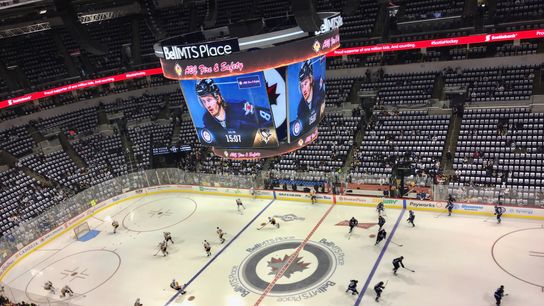Even after all the details of the Derick Brassard trade were done, even after the NHL finally granted its approval, one question lingers: Why would Vegas come riding to the Penguins' rescue?
Because that's exactly what happened.
Jim Rutherford's original deal with Ottawa, reached early Friday afternoon, was rejected by the league because it was deemed to circumvent the salary cap. And that's almost surely where it would have died if the expansion Golden Knights hadn't surprisingly agreed to pick up nearly half of Brassard's pay in what became a three-team trade.
To refresh the memory, these were the Vegas-Pittsburgh components of the trade:
• To the Golden Knights from the Penguins: Ryan Reaves and a fourth-round pick in 2018 originally acquired from the Canucks
• To the Penguins from the Golden Knights: Tobias Lindberg, a forward prospect, plus retaining 40 percent of Brassard’s prorated $5 million salary this season, plus the same percentage of the full salary, $2 million, next season
So if you toss out the prospects, the exchange essentially equates to Vegas, a team that already employs Deryk Engelland, paying out nearly $3 million to acquire an extra tough guy in Reaves?
Yeah, right.
That was George McPhee's public explanation, anyway.
"Ryan's a big strong guy who brings some grit and some real depth to our hockey club," McPhee told reporters in Nevada. "He's a unique player. The tough guys in this league, many of them have been rendered obsolete because they can't play. This guy can play and will be able to help us out."
That might well be true, but he soon was asked if his motivation was to block Brassard from going to another Western Conference team.
“We were able to keep him in the East," McPhee replied flatly. "Was that a material part of the deal? No.”
To bolster McPhee's stance, Rutherford said of trading Reaves, "That was a player that one of these teams insisted on having," meaning the Golden Knights, not the Senators.
Moreover, McPhee insisted he'd initially contacted Rutherford about Reaves "a couple days ago," then again Friday and that, from there, the trade "came together quickly." He added on that subject, "We gave up some cap space -- we have a lot of cap space -- and a minor-league player to do this, so we picked up two assets. I thought it was a good deal for our club.”
The astonishingly successful Golden Knights are 41-16-4 and atop the West. The Jets are 36-16-9 and third in the conference, but they've indisputably got the superior talent when healthy, and the recent return of Mark Scheifele is illustrating that. So they might be seen by Vegas as their primary competition and, hence, McPhee's defensive move on the chess board.
But the additional, and likely far more influential factor, was that Winnipeg's GM, Kevin Cheveldayoff, under intense pressure from fans in Manitoba to push this team over the top after years of underspending, was close to getting Brassard for the Jets. According to Scott Billeck, beat writer at the Winnipeg Sun, the Jets had either met or exceeded the Penguins' package of a current player, top prospect and first-round draft pick. If they'd pulled that off, they'd have had a superlative center group of Scheifele, Brassard, Bryan Little and Adam Lowry.
Other reports in Manitoba described Cheveldayoff's front office as being deeply disappointed to not have landed Brassard, apparently believing their offer to have been better.
Oh, well. Not the Penguins' problem anymore, right?

